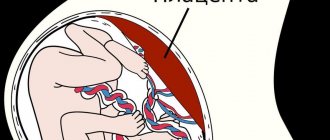Gambling addiction is a disease of modern society
Gambling addiction is a chronic progressive mental illness that falls under the category of addictions.
Other names for gambling addiction are gambling, gambling addiction. This disease is included in the International Classification of Diseases, 10th revision, under heading F63.0 and is considered on a par with addictions such as alcohol or drugs. The fast pace of modern life, the great demands made by society on a particular person, the need to make quick and error-free decisions - all this, like a snowball, falls on the heads of the individual.
Many people break under the pressure of modern society and look for ways to escape pressing problems, resorting to various kinds of addictions. In some cases it is a “green snake”, in others it is a needle into a vein. Gambling plays a significant role among addictions in modern society.
The percentage of gambling addicts among all types of addictions in the territory of the former USSR is, according to rough estimates, from 3% to 5%. According to the forecasts of addiction scientists (specialists in various types of addictions), this percentage is inexorably growing every year. The majority of gambling addicts are undoubtedly teenagers.
Features of computer games
Computer games of the latest generation are very different from everything that came before and from other games, for example, gambling, in that they are built in such a way that a person looks at the virtual space through the eyes of the hero and identifies as much as possible with the character. This allows a person to lose touch with reality and completely immerse himself in an illusory world. For the addict, this becomes a trap.
The game allows a person to do everything and a little more: to die and come back to life, to fly, to kill, to love beautiful drawn women and men, but in reality, for some reason, you cannot pause the conflict, replay the problem, return to the beginning, or use a cheating technique to solve a difficult situation.
Thus, according to psychologist M. S. Ivanov, role-playing games pose the greatest danger, since the mechanics of the game itself consist of a person “entering” the game, merging with the computer, losing individuality and identifying oneself with a computer character.
Ivanov identifies the criteria for especially harmful games: the strength of immersion (how well-developed the game universe is) and the absence of an element of excitement or its insignificance for completing the game. In other words, a person simply “lives” in the game, not trying to win anything or defeat anyone, and this virtual reality completely replaces the real one for him.
Note! Addicted gamers need psychological therapy; their problems are an undeveloped personal life, dissatisfaction with themselves, loss of the meaning of life and ordinary human values. Statistics indicate that they are subject to serious psychological difficulties: reduced emotional background; low activity; increased levels of anxiety and stress; social maladjustment.
Who is susceptible to gambling?
For the development of any addiction (including gaming addiction), it is necessary to have certain personal characteristics of the individual and certain predisposing environmental factors.
Personality Features
Personal characteristics of the psyche that predispose to the formation of gambling addiction include:
- low self-esteem;
- intolerance to criticism;
- anxiety;
- tendency to mood disorders, depression, suicidal tendencies;
- impulsiveness;
- a tendency towards symbolic (mystical thinking), inferior to rational thinking;
- thirst for active action;
- passion for risky actions, etc.
Thus, modern science has the character traits that a potential player possesses.
Among the personal characteristics that predispose to the development of gambling addiction, the motive for which a person begins to get involved in gambling is important.
Scientists identify two main motives that guide a potential player.
- A person’s need for risk, for dominance, for proof of his superiority over other people.
- Care, escape from the surrounding reality.
Photo: https://pixabay.com/photos/casino-adult-woman-young-bet-3720812/
Predisposing factors
Environmental factors predisposing to the development of gambling addiction can be divided into several blocks.
- Informational, including the wide availability of gambling, promoting this accessibility on radio, television, and the Internet; abundance of gambling advertising in the media.
- Family, arising from improper upbringing of the individual or the presence of various intrafamily problems and conflicts. Family factors include:
- lack of clear moral and ethical boundaries between generations in the same family;
- lack of rational models of behavior and response to a particular situation in the family;
- the lack of clear and defined roles for each family member in society;
- conflict in attitudes, principles, behavior patterns;
- inadequacy in family budget planning, etc.
- Economic, which are implemented by corporations that promote gambling to the global services market.
Emotional boost from the game
Computer addiction can arise as a result of excessive stress - someone in such a situation becomes depressed, someone discovers the virtual world. In fact, it's just an escape from reality. The psyche fails and itself turns on the destructive mode.
The first alarm bell is that during the game the condition of a person with addictive behavior improves. He experiences a powerful emotional uplift, because his skill in the game is growing, and his authority in the community of like-minded people is correspondingly increasing. Often, the status of an addict in the virtual world is very different from the status in real life; the latter, most likely, does not suit him. Naturally, as soon as a person has free time, he immediately begins to play, plunging into another reality.
Related article They don't work. 4 stupid mistakes in the fight against a child’s addiction to gadgets
Mechanisms of development of gambling addiction
Like any addiction, gambling addiction has certain development mechanisms. What is important is the combination of a person’s personal characteristics, which, interacting with certain environmental factors, can cause gambling addiction.
Personal character traits (anxiety, impulsiveness, risk-taking, etc.) determine whether a person gets hooked on a particular gambling game. Wins alternating with losses encourage a person to play round after round in the hope of hitting a big jackpot.
If a person has certain problems in the family, in relationships with his boss, or work colleagues, then these environmental factors increase the desire for gambling, forcing the person to move away from familiar reality into the world of computer (and not only computer!) games.
In the mechanism of development of gambling addiction, or gambling addiction, the motive that guides each player plays an important role.
Most often, gambling addiction is based on one of the motives.
- The desire to dominate, to prove one's superiority over other people, the need to take risks. With the development of gambling addiction through this mechanism, among the personal characteristics of an individual one can find low self-esteem, difficulties in accepting criticism, a tendency to depressive disorders and suicidal tendencies.
- The desire to escape from the surrounding reality. Personal sensitivity (increased emotional sensitivity), resentment, mental infantilism, immaturity and superficiality of judgment play an important role in the development of gambling addiction through this mechanism.
Tests and diagnostics
The main distinguishing feature of gambling addiction is the inability to independently give up gambling; an alarming symptom is the repetition of gambling episodes two or more times in a year, the desire to resume gambling regardless of the benefits.
To make a diagnosis of pathological gambling addiction, 5 points from the following criteria must be met:
- the person is completely absorbed in games, worries about past entertainment experiences, tries to refuse to participate in the game or, on the contrary, to prepare for the next one, looking for opportunities to find finances for money bets;
- increasing rates do not force the player to stop, but contribute to the achievement of thrills;
- in the past there have been cases of repeated unsuccessful attempts to stop gambling and control your addiction;
- less participation in gambling or complete refusal causes anxiety and irritability;
- the game is a way to get away from personal problems and eliminate dysphoria , depression , helplessness, guilt, anxiety ;
- obsessive ideas to win back in case of loss;
- the person cannot truthfully admit to either their loved ones or the doctor how involved and addicted they are to games;
- in order to find funds for betting, they are capable of forgery, fraud, theft and other unlawful actions to appropriate someone else’s property;
- close relationships, work, career growth, study are not a priority and the patient with gambling addiction is ready to give it all up at any moment;
- a person is not ready to take responsibility for a loss and wants to shift problems to others;
- behavioral reactions are not associated with a manic episode.
Stages of development of gambling addiction
Gambling addiction does not develop immediately, but gradually, passing through certain stages and slowly but inexorably capturing a person in its vicious circle. There are several classifications of the stages of development of gambling addiction.
Photo: https://pixabay.com/photos/poker-art%C3%ADculosdepoker-3825824/
5-stage classification
The most widespread classification is that distinguishes 5 stages of the course of gambling addiction, characterized by certain clinical manifestations.
Preparatory stage
This stage is characterized by the emergence of susceptibility to gambling. It is at this stage that the interaction of personality traits with environmental factors occurs. Depressive background mood and difficulties in relationships in the work team, desire for risk and rejection of critical comments from the boss, increased anxiety and difficulties in the family...
The synthesis of predisposing personal characteristics and environmental factors leads to a person’s desire to play. This is how the destructive process of developing gambling addiction begins.
Win stage
A person who starts playing, as a rule, expects a series of small wins. Having felt the taste of success, he is even more psychologically drawn into the game. A feeling of one’s own power appears, low self-esteem no longer looks so sad and increases somewhat, and the desire to play further and hit the big jackpot only intensifies, reinforced by a series of small wins.
At this stage, a person does not yet feel the painful feeling of being trapped, of escaping reality into the ghostly and illusory world of gambling addiction.
Losing stage
Every win is followed by a loss. At this stage, the person is already so involved in the game that a vicious circle is formed: the person bets his last money, loses it, goes into debt in the hope of winning back, but loses, and the cycle repeats itself.
The game becomes the center and focus of a gamer’s life. Family and work cease to occupy a great importance in the mind of the individual and recede into the background. A person begins to play more and more often and spend more and more of his time on the game.
For the sake of a game, a person is capable of resorting to lies even to those closest to him. Changes also occur in the emotional-volitional sphere of the psyche: irritability, fatigue, resentment appear and increase, and night sleep disturbances are possible.
At this stage, a person understands his dependence on the game and often tries to stop playing by force of will. However, all attempts are in vain, and when a strong, irresistible desire to play arises, he again rushes into the abyss of gaming madness.
Stage of disappointment and despair
At this stage, a person loses social connections with family, friends, and colleagues. He spends all his free time on the game, almost completely estranged from the real world. Emotional breakdowns, feelings of despair and hopelessness are common, and suicidal thoughts are possible.
Photo: https://pixabay.com/photos/cards-blackjack-casino-gambling-1030852/
Realizing his dependence on the game, a person continues to bet money in the hope of a big win, which, in his opinion, will return him to society again and help solve all his problems. At this stage, alcohol dependence often develops.
Hopelessness Stage
At this stage, the ignomaniac loses hope of winning anything at all, but continues his gaming activity without any clear goal.
Going through all 5 stages of development of gambling addiction takes on average from 1.5 to 3 years. In some cases, it is possible to shorten or, conversely, lengthen the required time for the formation of gambling addiction.
Clinical case
While on duty in the emergency department of a regional psychiatric hospital, I had to admit a young man suffering from gambling addiction. Having accidentally stumbled upon an advertisement for an online casino on the Internet, he decided to try his luck. A series of small wins inspired him, giving him confidence in his own abilities. Hoping to get a big win, the man began to place increasingly larger bets and spend more and more time on the game. However, the series of wins was followed by a series of large losses.
In an attempt to get even, the man quit his job, lost contact with friends, and moved away from friends. Getting into debt, he spent everything on the game, but there was still no coveted winnings. Depression increased and suicidal thoughts appeared. A simple game turned into madness, into a terrible nightmare.
An innocent desire to play, just to try - and after a short time it is already a strong addiction with a confusion of priorities and values, a real igromania, and in the end - game over! The emergence of a number of mental symptoms, which only a competent specialist can cope with. The man was hospitalized in the first attack department...
Kekelidze-Shemchuk classification
In addition to this classification, there is also the Kekelidze-Shemchuk classification, according to which the formation of gambling addiction goes through 4 stages.
- Preclinical stage – personality changes are of a faded, implicit nature. At this stage, a person can get rid of the need to play with the help of simple logical reasoning and proper prioritization.
- The stage of clinical changes is the emergence of mental dependence, obsessive thoughts about the game and search behavior (the desire to play at every opportunity).
- The stage of clinical dependence is changes in the emotional-volitional sphere of the psyche (impoverishment of emotions, callousness, rigidity, indifference towards relatives), deep mental dependence on the game.
- The stage of structural changes in the personality - the emotional component of the psyche is even more flattened, there is a loss of rational thinking in favor of magical, symbolic thinking. A person begins to notice “symbols”, “signs”, on the basis of which he draws conclusions whether the game will be successful or not. The gambling addict becomes indifferent to the world around him. Vivid emotions can only be evoked by a game, which becomes the heart of all existence.
Symptoms
Gambling addiction significantly affects a person’s behavior, his worldview and revaluation of values, which is expressed in the form of such manifestations as:
- passion for games - studying their new products, thinking and developing strategies, etc.;
- desire to increase the time and frequency of spending in gambling establishments;
- plays to cheer up, forget about problems and relax;
- substituting a range of previous interests and activities with gambling motivation - a person lies, does not admit his addiction and gradually stops communicating with family and friends, devotes less and less time to hobbies and work, becomes more withdrawn with an obsessive, difficult-to-overcome desire to play for money as quickly and as long as possible ;
- the desire for ever higher rates and a gradual increase in the frequency of participation in gambling;
- loss of control - the patient cannot spontaneously stop playing, regardless of the outcome of the game - a big win or a loss;
- psychological discomfort, irritation, anxiety during intervals without participating in games, which can even be compared with withdrawal from drug addicts; for some gamers it causes headaches , sleep disturbances , anxiety , bad mood, impaired concentration;
- a transient state of tension and gaming “drive” and excitement contributes to the desire to find an opportunity to participate in gambling again;
- the resumption of addiction and the inability to “quit” forever is caused by a rapidly increasing decrease in the ability to resist even the slightest temptations and provocations - talking about games, being near a gambling establishment.
Important! Abuse of alcohol and various psychoactive substances, difficulties in interpersonal relationships, frequent divorces, moving and changing jobs, debts, extortion, violations of labor discipline can be a typical manifestation of the development of a mental disorder and it is very likely that a person needs the help of a psychologist.
What signs indicate gambling addiction
The following changes in his psyche and behavior can indicate a person’s passion for gaming, reaching the point of illness:
- increased fatigue, irritability, flattening of emotions;
- the desire to “see signs”, a tendency to symbolic thinking;
- night sleep disturbances;
- Depressive symptoms and expression of thoughts about the hopelessness and meaninglessness of life;
- weakening and loss of social contacts, distance from friends and relatives;
- a large number of debts that a person does not want to repay;
- changing values and priorities.
Photo: https://pixabay.com/illustrations/no-money-poor-money-no-crisis-2070384/
If these signs occur, you should immediately seek help from a specialist!
Main causes of addiction
There are several reasons for dependence:
- Character traits . Closed people with a large number of complexes, as a rule, have difficulty finding contact with others. This can manifest itself even at school. It is extremely important not to confuse temperamental characteristics (for example, phlegmantic) with obvious problems.
- A bad example is before our eyes . If dad or mom spend 90 percent of their time on gadgets and only discuss games, then the child will certainly be interested in this topic.
- Lack of correct values in life , emphasis on material wealth, desire to earn money without work.
Mental disorders can be highlighted as a separate item. Excessive nervousness, even in childhood, and cruelty are reasons to immediately consult a specialist.
Does gambling addiction require confirmation of diagnosis?
Since gambling addiction is a serious progressive mental illness and has its own niche in the International Classification of Diseases (category F63.0), then, like any other disease, it requires its own diagnostic confirmation.
To diagnose gambling addiction, psychiatrists use a number of questionnaires and diagnostic scales to confirm the diagnosis.
Among them:
- false bet scale;
- Massachusetts Gambling Questionnaire;
- Sullivan questionnaire;
- Canadian Adolescent Questionnaire, etc.
Causes of gambling addiction among children and adolescents
Often parents themselves become a source of addiction for children and adolescents.
1. If they set an example by spending too much time on the computer and game console, they do not pay attention to the child and do not teach him to organize his own time.
2. Trying to “get rid” of the child: in order for him not to get in the way and not interfere, they themselves give him a phone, a tablet with “useful” programs downloaded into them. Many people do this from the age of one, and are even proud of the fact that “my child understands these technologies better than me,” but in the child’s fragile brain, excessive digitalization produces a bomb effect. He does not learn to live in the real world, does not notice its beauty and complexity, and has difficulty communicating with other people.
You can talk about gaming addiction in teenagers when you notice that they are losing interest in all areas of life: their academic performance is declining, their relationships with peers and teachers are deteriorating.
Symptoms of teenage gambling addiction include:
- aggressive protests to requests to leave the computer;
- anger and irritation when you still have to take a break from the gameplay;
- demanding money for game updates, improvements, for a more powerful computer/console;
- inability to determine and control time for hobbies;
- violation of sleep and rest patterns: the child does not sleep all night while playing;
- violation of eating habits: does not eat with the family at the table, eats sandwiches, chips, and other unhealthy “fast” food during the game;
- neglects hygiene;
- the mood improves only during the game, if you have to spend time with your family, demonstrates irritation and dissatisfaction;
- all his “friends” are interested in the same thing as him; he cannot or does not want to communicate with peers who do not play computers;
- neglect of household duties, studies, sports training.
Approaches to treating gambling addiction
Treatment of gambling addiction is a complex and long-term process aimed at developing correct personal attitudes and correcting existing disorders. Treatment of gambling addiction is the responsibility of addictionologists - specialists in the field of various types of addictions.
Psychotherapy plays a major role in the treatment of gambling addiction. There is a four-step system for treating gambling addiction , which explains how to get rid of gambling addiction through the joint work of the doctor and the patient and includes various psychotherapeutic techniques.
- The 1st stage is aimed at identifying the patient’s problems, the joint work of the doctor, the patient and his relatives.
- The 2nd stage includes medical and social rehabilitation and is aimed at overcoming mental dependence on the game.
- The 3rd stage - socio-psychological rehabilitation - is aimed at the formation of rational models of behavior, the solution of accumulated social problems and the formation of the ability to refuse gambling.
- Stage 4 includes a set of measures aimed at preventing relapse of the disease.
To correct existing disorders, various groups of pharmacological drugs are used:
- for low mood - antidepressants;
- for sleep disorders - selection of an individual dose of sleeping pills;
- for irritability - mood stabilizers, etc.
What is gambling addiction and how to treat it?
Gambling addiction is a kind of addiction, a harmful hobby, an excessive craving for the game process.
In the modern world, gambling addiction is a common disorder. Experts warn that it should not be considered a real disease of the 21st century. It is important to note that this type of addiction became known much earlier, but no one understood how to deal with it. Psychiatric science at that time was poorly developed. Few people studied psychology in those days. It should be mentioned that all people are susceptible to it, regardless of age and social status. It cannot be said that only representatives of a prosperous society suffer from gambling addiction. Gaming addiction develops from a fairly harmless hobby for games. There are computer, network and gambling entertainments. You can note the difference from most addictions: drug addiction, alcoholism, smoking. If a person is passionate about various games, his physical health will not suffer. We can only talk about problems with the emotional sphere. This is why gambling addiction is often compared to mental illness. The main difficulty of this phenomenon is that it cannot be immediately identified. There are no problems at the level of the somatic nervous system.
If you need a consultation with a hypnologist to treat gambling addiction, you can use the registration form at this link.
Contact and make an appointment Read about counseling and qualifications
How can gambling addiction end?
Consecutive changes in the clinical stages of gambling addiction cause certain changes in the psyche and behavior of a person. The symptoms of the depressive spectrum increase, the emotional component becomes flattened, the sleep-wake cycle is disrupted, and suicidal thoughts arise. Mental disorders also entail changes in the somatic state of the gambler - the function of the immune system decreases, chronic diseases form and worsen.
Photo: https://pixabay.com/photos/people-emotion-dramatic-female-1492052/
Gambling addiction is a serious progressive mental illness that requires treatment from a specialist! Willpower alone is not enough to overcome gambling addiction!
Consequences of computer addiction
Gambling addiction negatively affects all aspects of a person’s life:
- Sleep and rest patterns suffer.
- Eating habits change: the patient eats fast food so as not to be distracted from the game.
- Relationships with loved ones suffer.
- Work and educational processes are disrupted.
- The range of interests is limited.
- The character deteriorates, the patient becomes irritable and aggressive.
- Financial problems may arise due to unrestrained spending on upgrading your computer, purchasing the latest game console, various gadgets and programs.
Important According to neurologist Baroness Susan Greenfield, games are the cause of dementia, since modern means of entertainment lead to increased excitability of the nervous system. Over time, a person gets used to this condition, dependence occurs, and as a result, the risk of developing dementia increases.
Start working with a psychologist right now
Start a consultation










